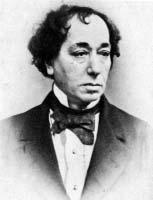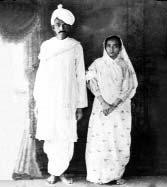The Intimate Sex Lives of Famous People (73 page)
Read The Intimate Sex Lives of Famous People Online
Authors: Irving Wallace,Amy Wallace,David Wallechinsky,Sylvia Wallace
Tags: #Health & Fitness, #Psychology, #Popular Culture, #General, #Sexuality, #Human Sexuality, #Biography & Autobiography, #Rich & Famous, #Social Science

“Don’t you see it?” (He also was a sleepwalker.)
In 1916 he began an affair with Lucy Mercer, who was originally hired as Eleanor’s secretary. Lucy came from a Social Register family which had suffered financial reverses. Stately, with a rich, velvety voice, she had an air of mystery and elegance about her. She accompanied Franklin (without Eleanor) on a weekend yacht cruise up the Potomac, and the two of them registered one night as man and wife at a Virginia Beach motel. When Eleanor wrote him letters reflecting her suspicions of why he chose to remain in Washington while she was at Campobello, their summer place in Canada, he answered ingenuously, “I really can’t stand that house all alone without you, and you were a goosy girl to think or even pretend to think that I don’t want you here
all
the summer, because you know I do!”
When Franklin returned from a trip to Europe as assistant secretary of the navy in 1918, he was ill with pneumonia. Eleanor sorted his incoming mail for him and found Lucy’s love letters. In a family conference, with Sara Roosevelt present, Eleanor offered him his freedom, but they decided to stay together, perhaps for political reasons, on the proviso that Franklin never see Lucy again.
In 1920 Lucy married, but much later, shortly before Franklin’s death, they met without Eleanor’s knowledge, though probably not for sexual intimacy. Lucy, along with several other people, was with Franklin at Warm Springs when he died. Eleanor wasn’t.
According to most sources, Franklin and Eleanor, who had never kissed before their marriage, stopped having sexual relations sometime between 1916
and 1918. Their relationship was cool, though not without affection. James Roosevelt, their son, recalls an incident where “she went to father and said simply, ‘Hall [her brother] has died.’ Father struggled to her side and put his arm around her. ‘Sit down,’ he said, so tenderly I can still hear it. And he sank down beside her and hugged her and kissed her and held her head to his chest….” Franklin’s pet name for her was Babs, which meant baby; in the latter part of their marriage he called her “my missus,” usually with pride.
In 1923 Missy LeHand, 23 years old and somewhat good-looking, became his secretary. She went everywhere with him, waited on him, and was probably in love with him. On more than one occasion, while they were cruising on the
Larooco
, the Roosevelt houseboat, she was seen sitting on his lap. When Eleanor was away, Missy acted as hostess for Franklin; she was his companion, listener, conscience. One Roosevelt son, Elliott, believes she was Franklin’s mistress; his son James does not. At 41 Missy was felled by a stroke, which left her without speech. In despair she swallowed chicken bones in an abortive suicide attempt.
For a while she lived at the White House, and Franklin wheeled himself into her room often to see her. In his will he left her half the income from his estate to pay her medical bills. Though she died before he did, he did not change his will.
Other women named as FDR’s possible lovers were Dorothy Schiff, once owner and publisher of the
New York Post
, and Princess Martha of Norway, who lived in the U.S. during WWII and called him “dear godfather” at his request.
Roosevelt was certainly capable of sexual activity in spite of his paralysis. In 1932 three doctors testified to that in writing: “No symptoms of
impotentia
coeundi
[inability to copulate].”
HER SEX LIFE:
To compensate for her loneliness and to fulfill her need for human warmth, Eleanor undertook a relationship of her own. In 1932 she met Associated Press reporter and possible lesbian Lorena Hickok, to whom, over the next 30 years, she wrote more than 2,300 letters, a few passionate. For example,
shortly after the Roosevelts moved into the White House, she wrote: “Hick darling, … Oh, I want to put my arms around you. I ache to hold you close. Your ring is a great comfort. I look at it and think she does love me, or I wouldn’t be wearing it.” On Nov. 27, 1933, the First Lady penned: “Dear one, and so you think they gossip about us, well they must at least think we stand separations rather well! I am always so much more optimistic than you are—I suppose because I care so little what ‘they’ say.” A few weeks later Lorena received this note: “Dear, I’ve been trying today to bring back your face—to remember just how you look.
Funny how even the dearest face will fade away in time. Most clearly I remember your eyes, with a kind of reassuring smile in them, and the feeling of that soft spot just northeast of the corner of your mouth against my lips. I wonder what we’ll do when we meet—what we’ll say. Well, I’m rather proud of us, aren’t you? I think we’ve done rather well.” Drawn together by a mutual sense of unattractiveness (Lorena wore her hair in a bun and was overweight) and humanitarian causes, they may have become lovers. At least one Roosevelt scholar, Rhoda Lerman, discounts the idea, but Lorena Hickok did live at the White House for four years, and Eleanor always made sure she was financially secure.
HIS THOUGHTS:
“Nothing is more pleasing to the eye than a good-looking lady, nothing is more refreshing to the spirit than the company of one, nothing more flattering to the ego than the affection of one.”
—A.E.
WORLD LEADERS
The Jewish Lion
BENJAMIN DISRAELI (Dec. 21, 1804–Apr. 19, 1881)
HIS FAME:
One of Britain’s greatest statesmen, Disraeli served in Parliament for 30 years and twice became Queen Victoria’s prime minister (1868; 1874–1880). His domestic and foreign policies, implemented by debate and oration, eventually led to the founding of the United Kingdom’s present-day Conservative party.
HIS PERSON:
The youthful Disraeli, heavily in debt after stock-market losses and a disastrous publishing venture, became a writer out of sheer desperation. To call attention to his literary efforts, he set his black hair in ringlets and frequented the London salons of the 1830s clad in green velvet
 trousers, an embroidered canary-yellow
trousers, an embroidered canary-yellow
waistcoat, silver-buckled black shoes,
and white wrist lace. A master of flattery
and the witty, foppish reply, Disraeli
conned his aristrocratic friends into
furnishing the colorful “inside” tidbits
that he used for
Henrietta Temple
and
other novels. In 1832, sensing a greater
challenge, he entered the political
arena. His unsavory reputation—for
extravagance and sexual encounters—
caused four successive defeats before he
finally sat in the House of Commons in
1837. During the next decade Disraeli
used his literary talent to advance his
political, social, and religious convictions
simultaneously, writing the trilogy
Coningsby
(1844),
Sybil
(1845), and
Tancred
(1847). After his political star brightened, he abandoned his peacock style of dress in favor of a dark suit, conservatively cut. Indispensable as a leader, yet distrusted by his colleagues, Disraeli was called both a man of genius and a self-serving opportunist during his long tenure in Parliament.
LOVE LIFE:
Disraeli’s
modus operandi
was simple and direct: “Talk to women as much as you can…. This is the way to gain fluency, because you need not care what you say, and had better not be sensible.” At age 21 he used the ploy to launch his first novel,
Vivian Grey
(1826–1827), while having an affair with Mrs. Sarah Austen, wife of a family friend. His barefaced flattery so charmed the impressionable lady that she not only fell madly in love with the callow youth but also persuaded her gullible husband to lend the young Jew turned Christian large sums of money. To keep the author’s identity secret (the novel’s characters were thinly disguised and unflattering portraits of prominent society figures), Mrs. Austen laboriously transcribed Disraeli’s entire holographic manuscript in her own distinctive handwriting before convincing a prominent publisher friend to buy it. Later, Disraeli would discard anonymity to trumpet his authorship of each new novel.
Seeking an entrée into London’s drawing rooms in 1832, Disraeli utilized his mistress, Mrs. Clara Bolton, a vivacious, party-giving doctor’s wife with impressive literary and political connections. Within the year, he had exchanged her for the oversexed and dazzling Lady Henrietta Sykes, a mother of four who fluttered obediently into his reach. Their passionate affair throbbed steadily for the next four years, aided conveniently by Henrietta’s husband, Sir Francis, whose frequent out-of-town grouse shooting was combined with a roving eye for a pretty ankle. Henrietta’s initial worries over being found out were forever banished when she caught her husband dallying with her lover’s former mistress Clara. A triumphant Henrietta secured Sir Francis’
promise that their extramarital couplings would be mutually ignored. Disraeli moved in with Lady Sykes at her London residence, but her incessant sexual demands began to ruin his health. According to contemporary rumor, Disraeli struck a unique pact with Lord Lyndhurst, a notorious womanizer and then leader of the Tory party. Lyndhurst—who fervently believed in platonic relationships “after, but not before” sexual intercourse—supposedly was eager to take on the willing Henrietta and in return sponsored Disraeli’s political career.
In 1839 Disraeli married Mary Anne Lewis, a wealthy widow some 12
years older than he. His year-long courtship nearly ended in disaster when he demanded she become his wife immediately to end snickers that he was merely her paid lover. Indignant, she threw him out, but the resourceful suitor spent the night composing a masterful 1,472-word plea for reconsideration. Tearfully, Mary Anne changed her mind even though his letter candidly admitted that originally he had been solely interested in her money and devoid of all “romantic feelings.” Surprisingly, their marriage became one of history’s greatest love matches, lasting over 33 years. As Mrs. Disraeli, Mary Anne kept all of London in a continuous state of shock with her titillating double-entendre remarks and her outrageous costumes, which defied the current fashion. But even as she played the role of a flirtatious featherbrain, Mary Anne shrewdly kept her husband constantly in the public eye, an accomplishment which greatly helped to retain Disraeli in office. She paid his enormous debts, personally cut his hair, and mothered him through endless crises. Dying of stomach cancer (both thought they were concealing the fact from each other), she gave her beloved “Dizzy” written permission to seek another mate after she was gone.
In 1873, a year after Mary Anne’s death, Disraeli began his last affair, a bizarre romance with Lady Bradford. He chased her ardently for years, scribbling passionate notes daily while he listened absentmindedly to boring speeches in Parliament. His cause was hopelessly lost from the beginning; Lady Bradford was happily married and a grandmother. In desperation, believing forlornly that the status of brother-in-law might allow closer contact with Lady Bradford, he even proposed formally to her 71-year-old sister, Lady Chesterfield. Tactfully, she turned him down.
HIS THOUGHTS:
When William Gladstone publicly commented that Disraeli would “probably die by the hangman’s noose or a vile disease,” Disraeli promptly replied, “Sir, that depends upon whether I embrace your principles or your mistress.”
—W.K.
 The Politics Of Sexual Sublimation
The Politics Of Sexual Sublimation
MOHANDAS KARAMCHAND GANDHI (Oct. 2, 1869–Jan. 30, 1948)
HIS FAME:
He ranks with Jesus Christ
and Buddha as a great religious teacher, a
prophet with the spiritual force to transform the lives of his followers. Politically,
his gospel of militant nonviolence—
inspired by the passive resistance of his
child-bride—brought independence to
India and influenced the great nationalist
revolutions of the 20th century.
HIS PERSON:
He was the youngest,
smallest, and favorite child of the middle-aged prime minister of the minor